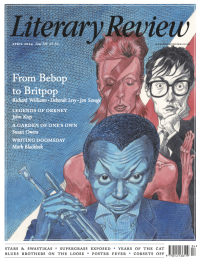Tim Brinkhof
Learning from Werewolves
Before he became known as the author of The Hobbit and The Lord of the Rings, J R R Tolkien taught English language and literature at Oxford University. Back then, his area of expertise wasn’t yet Middle Earth but the medieval poem Beowulf, about a legendary hero who fights terrible monsters. Already interested in the fantastical, Tolkien had a Balrog-sized bone to pick with his fellow academics, who laboriously studied the historical and religious context of Beowulf’s epic quest without paying proper attention to the otherworldly creatures he encountered along the way. As Tolkien saw it, monsters like the giant Grendel didn’t distract from the text’s deeper meaning. They were its deeper meaning.
His argument, the academic Charity Urbanski explains in a new book, Medieval Monstrosity: Imagining the Monstrous in Medieval Europe, has become the foundation of contemporary monster theory, a theory that presents monsters not as figments of our own imagination but as reflections of collective anxieties.
Just as Tolkien’s nameless, hyper-militarised orcs have been interpreted as symbols of modernity and fascism, so do many medieval creatures reflect the troubles of the time periods in which they originated. Often, their original significance turns out to be completely different to their later one. Modern-day werewolves, as seen in

Sign Up to our newsletter
Receive free articles, highlights from the archive, news, details of prizes, and much more.@Lit_Review
Follow Literary Review on Twitter
Twitter Feed
The son of a notorious con man, John le Carré turned deception into an art form. Does his archive unmask the author or merely prove how well he learned to disappear?
John Phipps explores.
John Phipps - Approach & Seduction
John Phipps: Approach & Seduction - John le Carré: Tradecraft; Tradecraft: Writers on John le Carré by Federico Varese (ed)
literaryreview.co.uk
Few writers have been so eagerly mythologised as Katherine Mansfield. The short, brilliant life, the doomed love affairs, the sickly genius have together blurred the woman behind the work.
Sophie Oliver looks to Mansfield's stories for answers.
Sophie Oliver - Restless Soul
Sophie Oliver: Restless Soul - Katherine Mansfield: A Hidden Life by Gerri Kimber
literaryreview.co.uk
Literary Review is seeking an editorial intern.